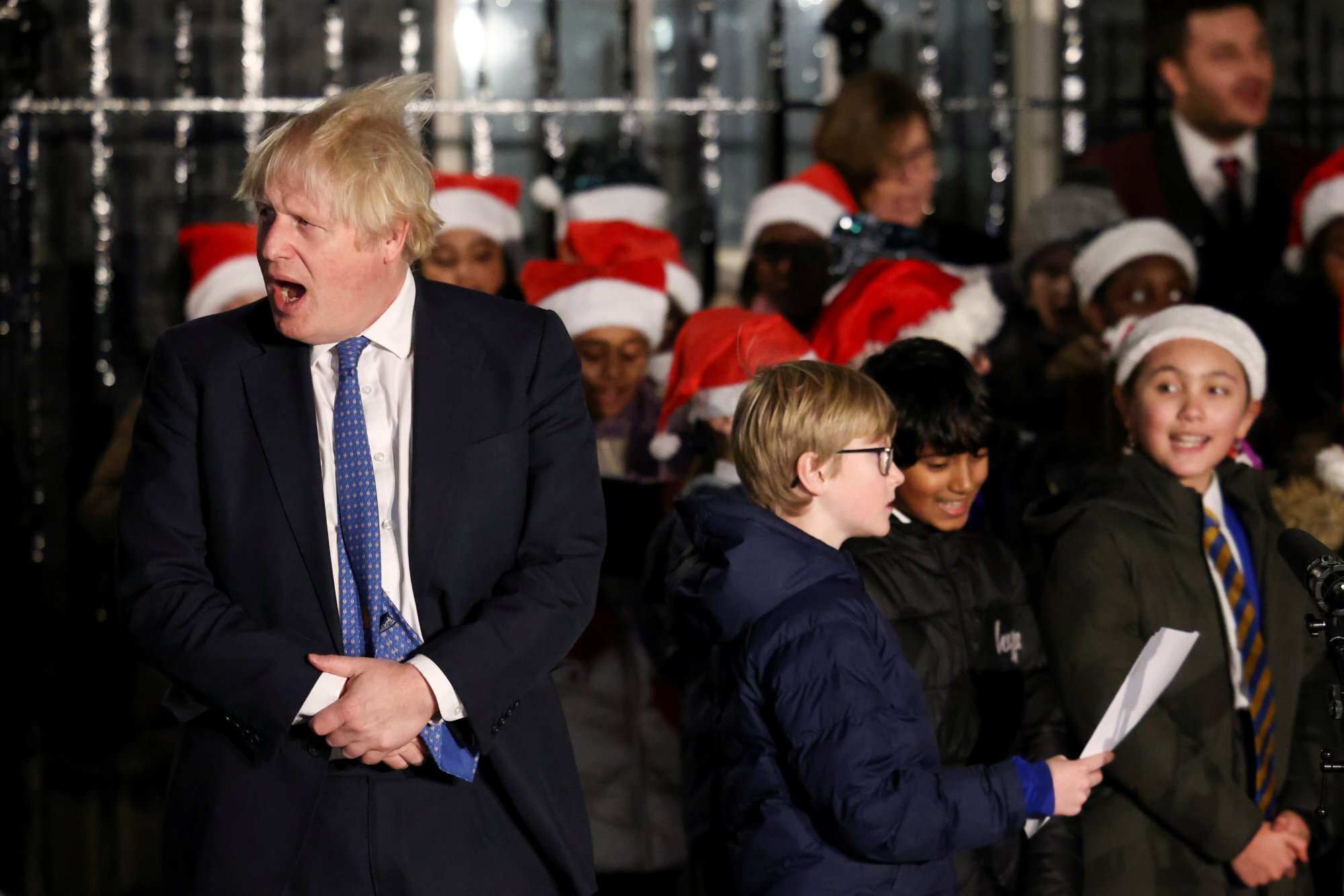
Leaks, lies and an illegal Christmas party: what Asia can learn from Boris Johnson’s latest crisis
- The British prime minister is now facing his third scandal in which people close to him flouted Covid-19 rules, putting a question mark over his moral authority
- This saga is not only a cautionary tale about how not to lead, but also an illustration of how a free press helps to keep officials accountable
This time, it has to do with a Christmas party at Downing Street held last December – while the country was in lockdown.
Officials spent much of the last week denying the party even took place.
But they ended up with pie on their faces after a video was leaked to a television station showing officials joking about the lies a government spokeswoman should tell if she were asked about the event.
The spokeswoman, Allegra Stratton, meanwhile resigned, saying in a tearful statement her remarks in the leaked video “seemed to make light of the rules, rules that people were doing everything to obey”.

It is inexplicable that the prime minister was unaware of a party attended by dozens of his staff within the same premises as his office and official residence.
The incident is one year old, but the official prevarication before the video was leaked makes one wonder if the Johnson government has learned anything from its botched handling of two similar high-profile Covid rule breaches by officials.
In both instances, involving former Johnson aide Dominic Cummings and the former Health Secretary Matt Hancock, the protagonists enjoyed stout defence from Downing Street before the shrillness of public anger made them fall on their swords.
In Hancock’s case, it was a leaked video that compelled his resignation.
Boris Johnson is testing China with Britain’s foreign policy ambiguities
MPs on Wednesday lined up in parliament to blast Johnson over his handling of the latest saga, and rightly so.
With public trust in the government already in short supply due to past breaches, the opposition leader Keir Starmer questioned whether Johnson still had the moral authority to lead the country and enforce rules when those closest to him paid them little attention.

This point is particularly pertinent given the British government has now decided to tighten social gathering rules amid fears about the Omicron variant.
Johnson may yet have to pay for this crisis with his job, going by latest media reports. In the Financial Times on Thursday, an unnamed long-standing ally of the prime minister is quoted as saying he is “down a couple of cat lives” and cannot “afford any more mistakes”.
While the saga is riveting for those looking from outside – especially from Asia – there is no reason to gloat or be sanctimonious.
Ultimately, the officials in these episodes were brought to account because of a political culture that allows for relatively cost-free whistle-blowing and hard-hitting accountability journalism.
In our region, where the browbeating of the media and whistle-blowers by governments is a norm rather than exception, the hurdles one needs to overcome to keep officials accountable are much higher.

